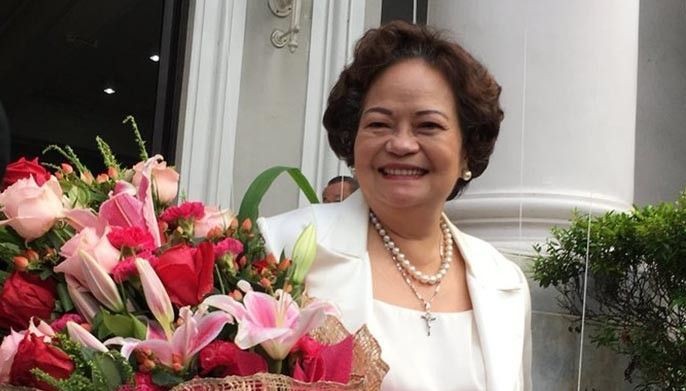De Castro: Track record, not quo warranto vote propelled me to top judge post
MANILA, Philippines — Chief Justice Teresita De Castro on Tuesday stressed that it was her track record—and not a vote on the ouster of former Chief Justice Maria Lourdes Sereno—propelled her to the top judge post.
The chief justice met with the members of the press on Tuesday, shortly after she took her oath before her colleagues at an en banc session.
Her appointment, made public on Saturday, was met with strong criticism from the public, saying that it was a reward for her vote on the quo warranto petition against former Chief Justice Sereno—who was publicly labeled by President Rodrigo Duterte as his enemy.
But the chief justice said that her credentials to become the country’s top judge should not be narrowed down into just one vote.
“I think people should just think of my track record, my long service at the judiciary. And I don’t think that one incident like you mentioned (quo warranto petition) would have been enough for me to be elevated in this highest position of the judiciary,” De Castro said.
De Castro—who was then an associate justice of the court—served as one of the resource speakers for the House of Representatives’ impeachment proceeding against Sereno. Observers pointed out that her testimony seemed to confirm a rift between her and the then-chief justice.
The tension between the two magistrates also spilled over the oral arguments on the quo warranto petition and on public events, but De Castro, during her public interview, clarified that she had a good working relationship with Sereno.
De Castro said that those criticizing her appointment should also look at her track record in service.
She also stressed that before becoming the chief justice, she has been serving the Philippine government for more than four decades. Upon her retirement in October, she would have stepped down after serving for “45 years and 8 months.”
De Castro assures judicial independence
The chief justice clarified that she has yet to meet the president. She said that she does not think that the president would interfere with the matters of the SC.
“Up to this time, I have not met the president,” she said, adding that the appointment was made without Duterte knowing her personally.
She also thanked the president for “upholding the merit system, the hallmark of appointments in public service.” De Castro said that in the SC, being a senior justice equates to having vast experience in the court.
Sereno was considered a junior justice when she was appointed as chief justice in 2012. This was later brought up by some of the justices who appeared at the House hearing.
In May, the SC voted 8-6 to remove Sereno over missing wealth declaration documents. The tribunal affirmed the controversial ruling in June.
- Latest
- Trending


































